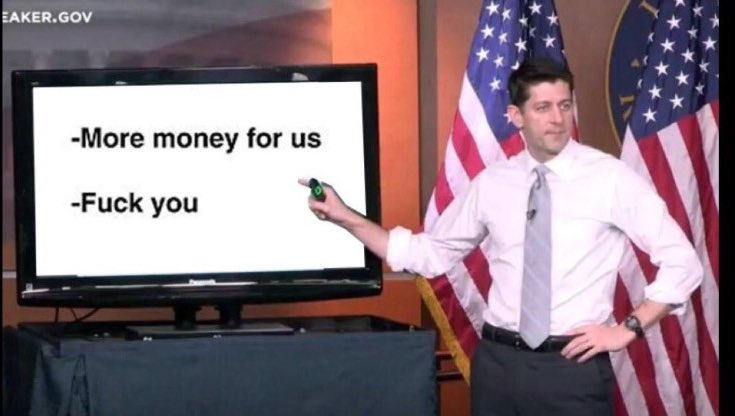Yesterday,
the Eighth Circuit sitting en banc upheld Arkansas' law prohibiting government contractors from boycotting Israel during the tenure of their contract. The ruling makes for interesting reading, more because of what isn't said than what it is. At one level, the ruling seems to have dramatic implications extending far beyond the case of Israel. And on another level, the ruling (including the solo dissent from Judge Kelly) barely even discusses what I would consider to be many of the critical issues in play.
First thing's first. As many of you know, I clerked on the Eighth Circuit, and it is now as it was then a
very conservative court. JTA's bland statement that "
The Eighth Circuit is considered to have a conservative makeup" does not do it justice. There is a grand total of one Democratic appointee serving on the court, the inestimable Judge Jane Kelly. While it lacks the outright nihilist streak that has afflicted the Fifth Circuit of late, it is fair to characterize the Eighth Circuit as among the most right-wing courts in the country.
In any event. The Arkansas law requires that state contractors certify they will not "boycott Israel" for the duration of the contract. "Boycott Israel", in turn, is defined to encompass doing any of the following three things “in a discriminatory manner”:
(1) “engaging in refusals to deal”;
(2) “terminating business activities”; or
(3) taking “other actions that are intended to limit commercial relations with Israel, or persons or entities doing business in Israel or in Israeli-controlled territories.”
The court essentially divides its analysis in two. One question is whether things like "refusals to deal" or "terminating business activities" should be seen as potentially implicating First Amendment values (that is, are they expressive). The second question is whether the third clause, covering nebulous "other actions", includes activities that are unquestionably First Amendment protected (e.g., writing an editorial supporting BDS -- which presumably would be "intended to limit commercial relations with Israel"), or whether that clause should be read to only cover commercial conduct akin to that covered in the first and second clause.
The first question basically gets to the issue of whether "boycotts" are First Amendment protected. Citing Rumsfeld v. FAIR, the majority concludes they are not, because boycotts are non-expressive conduct that only garners an expressive meaning if accompanied by explanatory speech. The venerable NAACP v. Claiborne Hardware case does not control, the court says, because Claiborne only extends to the speech that accompanies the boycott (e.g., the signs and pickets around a store), not the "action" of the boycott itself.
This is a big ruling. The holding that the "action" of boycotting falls categorically outside First Amendment protections is a major decision, and one that deserves every bit of public scrutiny and inquiry that this decision is getting. In that respect, the Eighth Circuit decision is getting the proper amount of attention and concern.
This makes it all the more strange the fact that the court itself doesn't act as if its conclusion was a big deal. Its holding was delivered in conclusory fashion at scarcely three pages worth of analysis. While the Eighth Circuit does tend to prefer relatively terse opinions over the long, rambling, and often self-indulgent treatises that other circuit courts typically issue, there's little indication that it viewed the "are boycotts speech" question as a substantial issue.
Likewise, most of the dissenting opinion also does not really question the majority's assumption that boycotts are not speech. Indeed, far more of the debate between the majority and dissent focuses on the second question -- whether or not the Arkansas law, in its third provision, captures activity that is unquestionably First Amendment protected. This is a matter of statutory interpretation -- what is the best way to read the statute under Arkansas law? -- and while that may be an interesting question to some, it is certainly not what is driving the interest over this case. Yet nearly all of Judge Kelly's solo dissent focuses on this second question, while arguably taking for granted the seemingly big sweep the court makes regarding the first question. The result is that the "boycotts are speech" position -- fervently held and believed in by substantial sectors of the American people -- neither gets a substantial challenge (from the majority) nor a substantial defense (from the dissent). This is a very, very odd omission.
Judge Kelly does not spend much, if any time, arguing that the "action" of boycotting is First Amendment protected. Rather, her position is that the law goes beyond regulating non-expressive economic activity and captures purely expressive speech (again, the proverbial pro-BDS editorial or flyer). On my quick read, both majority and dissent have plausible arguments for what the best read of the Arkansas statute is -- but again, that is not the issue anyone actually cares about. A ruling that says "Arkansas' law is unconstitutional because it does not just target the act of boycotting but also pure expression supporting a boycott" should be equally upsetting to critics as "Arkansas' law is constitutional because it only targets the act of boycotting and does not cover pure expression supporting a boycott." Yet that appears to be the locus of the dispute between majority and dissent.
Judge Kelly at most only alludes to the questions that many of us view as central to a case like this. For example, the very end of her dissent briefly suggests that the law does not just cover what the contractor does in the course of fulfilling his or her contract but also "prohibits the contractor from engaging in boycott activity outside the scope of the contractual relationship 'on its own time and dime.'" This is something I've long felt was important in distinguishing valid versus invalid state regulations in this field. Is Judge Kelly correct that Arkansas' law does limit the contractor's "own time" behavior? Does that make a difference? Neither majority nor dissent really say.
Likewise, the seemingly key question of whether boycotts are at all "expressive" is given scant attention. The majority cites FAIR to say they are not, because the conduct would not be understood as "expressive" absent additional speech explaining the intended meaning. In FAIR, the question was whether a law school could refuse to allow military recruiters on campus as a means of protesting Don't Ask Don't Tell; the Court said that was not expressive because an observer wouldn't know that the recruiters' non-presence was meant to be a message sent from the law school absent the law school saying "the recruiters are not here because we are sending the message that ...."
There is some purchase to applying FAIR to the case of boycotts. Imagine two people walk into a store. They both see a Hewlett-Packard computer on sale. They both then walk out without buying it. Have they "boycotted" HP? An observer would have no way of knowing absent the customer explaining their behavior as a boycott. After all, there are a myriad of other reasons why one wouldn't buy an HP computer; the average observer would not have any basis for assuming that the non-purchase was for boycott related reasons.
However, the logic of FAIR also cuts in the other direction. In FAIR, the Solomon Amendment required that law schools provide access to military recruiters. It didn't matter why a law school didn't want to provide such access (whether for "expressive" or "non-expressive" reasons); the schools had to provide the access regardless. In this way, the law didn't single out "expressive" objections for singular opprobrium; it treated the expressive and non-expressive objectors exactly the same (i.e., by bulldozing the objection).
Anti-boycott laws, though, are different. The Arkansas law here certainly does not say "every government contractor must buy Israeli goods". There are myriad reasons why a contractor might not purchase from an Israeli vendor, and for the most part they remain free to do so. The only time they are forbidden from doing so is when their action is a boycott. But that means that, unlike FAIR, the hitherto hidden expressive character of their conduct is what distinguishes licit and illicit behavior. Judge Kelly does allude to this in a footnote, pointing out that the ordinary meaning of "boycott" (undefined in the Arkansas statute) "includes an inherent element of expression" -- it is a refusal to buy that is done as a means of protest or disapproval. Hence, the contractor's action is only illegal if it is expressing a particular (disfavored) message -- something that should spark obvious First Amendment concerns.
We should recognize we're treading on very precarious terrain here. While not defining "boycott" directly, the Arkansas statute frames what is prohibited as "discrimination" against Israel. The risk that First Amendment protections for "boycotts" could generate First Amendment protections for "discrimination" is by no means unfounded, particularly in the era of Masterpiece Cakeshop and First Amendment Lochner-ism. Applying the above analysis to anti-discrimination claims, one can imagine a restaurateur refusing to seat a Black patron, then defending himself by saying "there are all sorts of reasons why I might not seat a patron; yet what makes my conduct illegal is the message I intend to convey -- that I object to Black people." Courts have not (yet) accepted that logic, and there are some bases for making distinctions here. But ask yourself how much you want to prop that door open for Alito and company by going all in on "refusal to engage in business transactions with disfavored groups is your First Amendment right!"
Finally, one other nettlesome issue about the Arkansas law that comes to my mind is the potential viewpoint discrimination problem. Different states have written their anti-BDS laws in different ways, and I've noted before my strong preference for those which do not single out Israel for special treatment but instead craft a broader rule forbidding, e.g., discrimination on basis of nationality or national origin. Arkansas' law is not like that -- it provides enhanced protections for Israel and only Israel. Contractors are apparently free to boycott Palestine, or France, or Germany, or Russia or Ukraine or China or India or Zambia without consequence.
This to me generates a serious viewpoint discrimination problem. As Justice Scalia pointed out in R.A.V. v. City of St. Paul, even where a state has legitimate reasons for restricting certain types of speech -- and we can stipulate for sake of argument that nationality-based discrimination, even where styled as a "boycott", is one such case -- it "has no such authority to license one side of a debate to fight freestyle, while requiring the other to follow Marquis of Queensberry rules." If Arkansas thinks this sort of behavior has to be restricted, it has to restrict on both sides of the ledger -- it cannot single out one side of the controversy for special restriction because that side represents the disfavored viewpoint. After all, we might not be aghast if a state required its contractors to certify that they do not discriminate on the basis of race; I think we'd be far more concerned if a state only required them to certify they do not discriminate against White people, while being a-okay with contractors who discriminate against other racial groups.
In any event, the Eighth Circuit decision devotes cursory, if any, attention, to all of these issues. That applies as much to Judge Kelly's dissent as Judge Kobes' majority opinion. Normally, I'm not upset by the Eighth Circuit's preference for shorter and more compact opinions, but here I think they made a very big move without fully thinking it through or potentially even realizing it. This case very well could end up before the Supreme Court, and with the court that we have who knows what hash will be made of both First Amendment and anti-discrimination legal guarantees?




